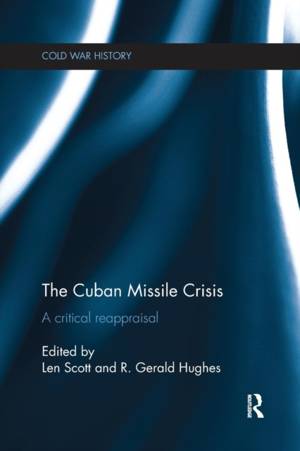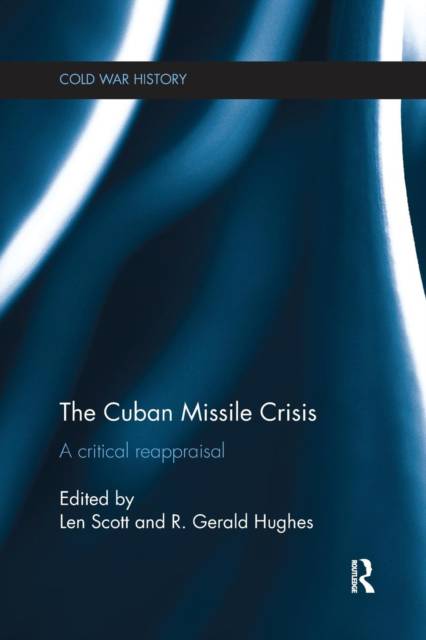
- Retrait gratuit dans votre magasin Club
- 7.000.000 titres dans notre catalogue
- Payer en toute sécurité
- Toujours un magasin près de chez vous
- Retrait gratuit dans votre magasin Club
- 7.000.0000 titres dans notre catalogue
- Payer en toute sécurité
- Toujours un magasin près de chez vous
Description
This volume brings together a collection of leading international experts to revisit and review our understanding of the Cuban Missile Crisis, via a critical reappraisal of some of the key texts.
In October 1962, humankind came close to the end of its history. The risk of catastrophe is now recognised by many to have been greater than realised by protagonists at the time or scholars subsequently. The Cuban missile crisis remains one of the mostly intensely studied moments of world history. Understanding is framed and informed by Cold War historiography, political science and personal experience, written by scholars, journalists, and surviving officials. The emergence of Soviet (later Russian) and other national narratives has broadened the scope of enquiry, while scrutiny of the operational, especially military, dimensions has challenged assumptions about the risk of nuclear war.
The Cuban Missile Crisis: A Critical Reappraisal brings together world leading scholars from America, Britain, France, Canada, and Russia to present critical scrutiny of authoritative accounts and to recast assumptions and interpretations. The book aims to provide an essential guide for students of the missile crisis, the diplomacy of the Cold War, and the dynamics of historical interpretation and reinterpretation. Offering original ideas and agendas, the contributors seek to provide a new understanding of the secrets and mysteries of the moment when the world went to the brink of Armageddon.
This book will be of great interest to students of the Cuban missile crisis, Cold War Studies, nuclear proliferation, international history and International Relations in general.
Spécifications
Parties prenantes
- Editeur:
Contenu
- Nombre de pages :
- 272
- Langue:
- Anglais
- Collection :
Caractéristiques
- EAN:
- 9780415787161
- Date de parution :
- 30-11-16
- Format:
- Livre broché
- Format numérique:
- Trade paperback (VS)
- Dimensions :
- 156 mm x 234 mm
- Poids :
- 412 g

Les avis
Nous publions uniquement les avis qui respectent les conditions requises. Consultez nos conditions pour les avis.





